|
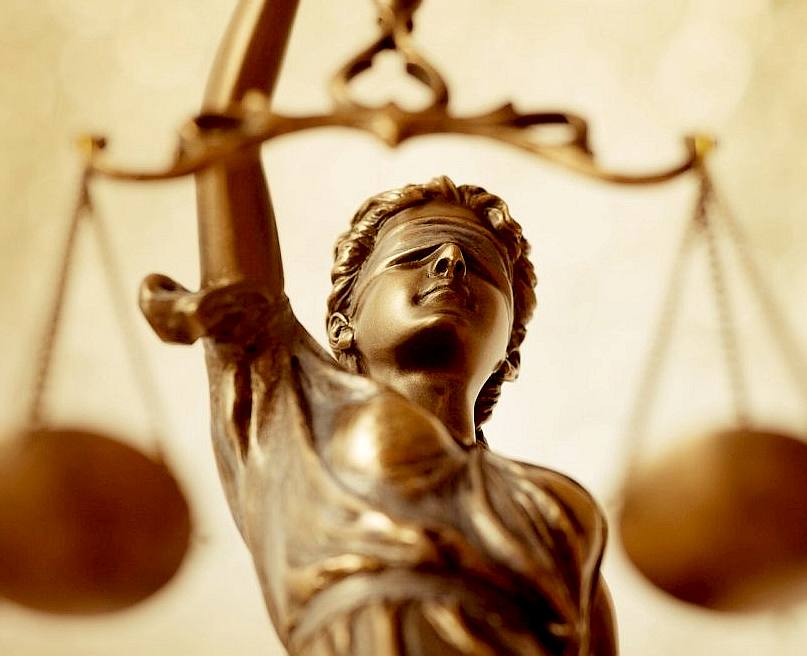
DIANA
INQUEST
Lady
Butler-Sloss announced that she was stepping down from the Diana inquest in April 2007, prior to the start of hearings in October.
She cited her lack of experience in presiding over jury cases as the reason.
She continued to preside over pre-inquest hearings to ensure that the proceedings did not lose momentum.
Butler-Sloss had originally planned to hold the inquest without a jury, but was overruled by three senior judges in March last year after her decision was challenged by Fayed.
Al Fayed's website described Butler-Sloss - who spent her entire career as a judge in the family division and the court of appeal, where juries never sit - as a "pantomime dame".
2007 INQUEST
Under English law, an inquest is required in cases of sudden or unexplained death. The inquests into the deaths of Diana and Fayed opened on 8 January 2007, with Dame Elizabeth Butler-Sloss acting as Deputy Coroner of the Queen's Household for the Diana inquest and Assistant Deputy Coroner for Surrey in relation to the Fayed inquest. Butler-Sloss originally intended to sit without a jury; this decision was later overturned by the High Court, as well as the jurisdiction of the Coroner of the Queen's Household. On 24 April 2007, Butler-Sloss stepped down, saying she lacked the experience required to deal with an inquest with a jury. The role of Coroner for the inquests was transferred to Lord Justice Scott Baker, who formally took up the role on 11 June as Coroner for Inner West London.
On 27 July 2007, Baker, following representations for the lawyers of the interested parties, issued a list of issues likely to be raised at the inquest, many of which had been dealt with in great detail by Operation Paget:
1. Whether driver error on the part of Henri Paul caused or contributed to the cause of the collision
2. Whether Henri Paul's ability to drive was impaired through drink or drugs
3. Whether a Fiat Uno or any other vehicle caused or contributed to the collision
4. Whether the actions of the Paparazzi caused or contributed to the cause of the collision
5. Whether the road/tunnel layout and construction were inherently dangerous and, if so, whether this contributed to the collision
6. Whether any bright/flashing lights contributed to or caused the collision and, if so, their source
7. Whose decision it was that the Princess of Wales and Dodi Al Fayed should leave from the rear entrance to the Ritz and that Henri Paul should drive the vehicle
8. Henri Paul's movements between 7 and 10 pm on 30 August 1997
9. The explanation for the money in Henri Paul's possession on 30 August 1997 and in his bank account
10. Whether Andanson was in Paris on the night of the collision
11. Whether Diana's life would have been saved if she had reached hospital sooner or if her medical treatment had been different
12. Whether Diana was pregnant
13. Whether Diana and Dodi Al Fayed were about to announce their engagement
14. Whether and, if so in what circumstances, the Princess of Wales feared for her life
15. The circumstances relating to the purchase of the ring
16. The circumstances in which Diana's body was embalmed
17. Whether the evidence of Tomlinson throws any light on the collision
18. Whether the British or any other security services had any involvement in the collision
19. Whether there was anything sinister about (i) the Cherruault burglary or (ii) the disturbance at the Big Pictures agency
20. Whether correspondence belonging to the Princess of Wales (including some from Prince Philip) has disappeared, and if so the circumstances.
The inquests officially began on 2 October 2007 with the swearing of a jury of six women and five men. Scott Baker delivered a lengthy opening statement giving general instructions to the jury and introducing the evidence. The BBC reported that Mohammed Al-Fayed, having earlier reiterated his claim that his son and Diana were murdered by the Royal Family, immediately criticised the opening statement as biased.
The inquest heard evidence from people connected with Diana and the events leading to her death, including Paul Burrell, Mohamed Al-Fayed, her stepmother, the survivor of the crash, and the former head of MI5.
Scott Baker began his summing up to the jury on 31 March 2008 He opened by telling the jury "no-one except you and I and, I think, the gentleman in the public gallery with Diana and Dodi painted on his forehead sat through every word of evidence" and concluded that there was "not a shred of evidence" that Diana's death had been ordered by the Duke of Edinburgh or organised by the security services. Lord Justice Scott Baker concluded his summing up on Wednesday, 2 April 2008. After summing up, the jury retired to consider five verdicts, namely unlawful killing by the negligence of either or both the following vehicles or Henri Paul; accidental death or an open verdict. The jury decided on 7 April 2008 that Diana had been unlawfully killed by the grossly negligent driving of Paul and following vehicles.
The cost of the inquiry exceeded £12.5 million, with the coroner's inquest at £4.5 million, and a further £8 million spent on the Metropolitan Police investigation. It lasted 6 months and heard 250 witnesses, with the cost heavily criticised in the media.
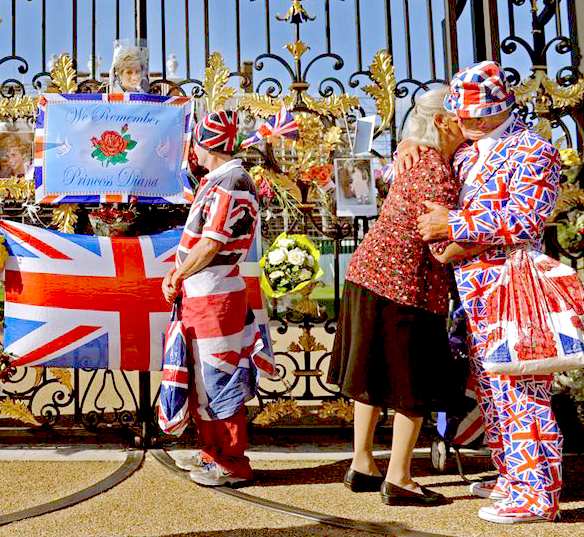
MOHAMAD FAYED - TELEGRAPH 2008
Mohamed Fayed has announced that he will abandon his quest to uncover a sinister conspiracy behind the deaths of his son Dodi and the Princess of Wales.
Following the conclusion of the inquest into their deaths, Mr Fayed said he would accept the verdict of the jury, adding that he was "tired" and was "leaving the rest for God to get my revenge".
Mr Fayed has long and loudly maintained that his son and the Princess were murdered by British secret agents at the behest of the Duke of Edinburgh.
His theories were found to be utterly without foundation by the Coroner, when his legal team could produce no evidence to back them up during the inquest.
Earlier, Rosa Monckton, a close friend of the Princess, called Mr Fayed's behaviour since the crash in Paris, "almost unforgivable".
She said: "I feel extremely sorry for him. He did lose his son, but I think the way he has behaved over the last 10 years and what he has put her sons through has been almost unforgivable and I would say please rest now - give your son some dignity in death, and give Diana hers."
She told ITV News: "I very much hope he will accept the jury's verdict and I hope more than anything that she will be remembered for the wonderful woman she was and all the good that she did, rather than the way she met her tragic end."
Mr Fayed, however, told Sir Trevor McDonald that he believed Prince William and Prince Harry would give their blessing to his search for the truth "in their deep heart".
He added: "I'm a father who has lost his son and I've done everything for 10 years. But now with the verdict I accept it but with reservations.
"Enough is enough. And for the sake of the two Princes who I know loved their mother."
He added: "I'm very grateful to [the jury] because the most important thing in their verdict is that they mentioned that it is not an accident, it's an unlawful killing.
"After meeting with my lawyers this afternoon there are still a lot of options but I'm tired.
"The most important thing is that the jury has come up that this is not an accident, it's a murder. And this gives me great satisfaction because it proved my point that my son and Diana were murdered."
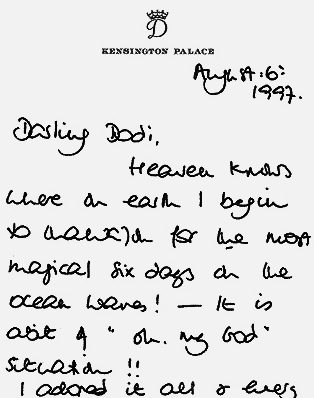
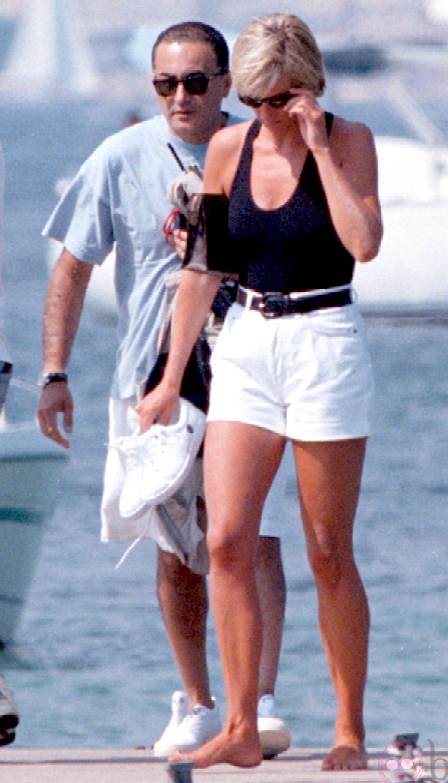
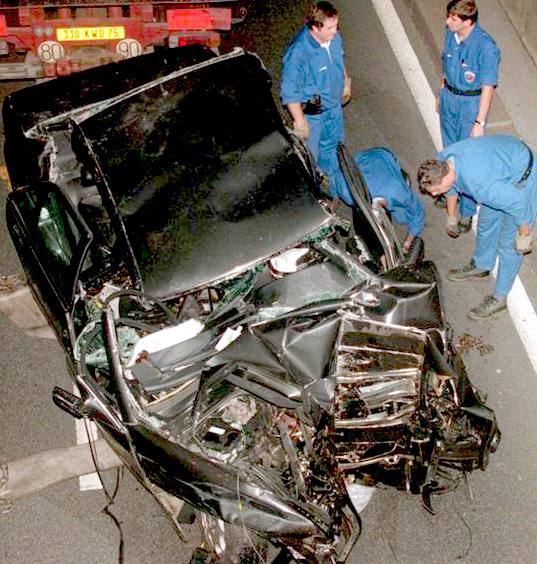
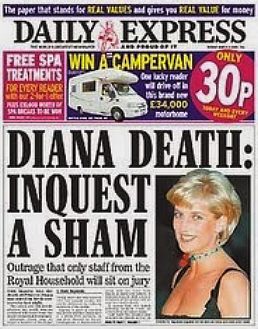
DEATH OF DIANA PRINCESS OF WALES
On 31 August 1997, Diana, Princess of Wales died as a result of injuries sustained in a car crash in the Pont de l'Alma road tunnel in Paris, France. Her boyfriend, Dodi Fayed, and the driver of the Mercedes-Benz W140, Henri Paul, were also pronounced dead at the scene; the bodyguard of Diana and
Dodi, Trevor Rees-Jones, was the only survivor. Although the media pinned the blame on the paparazzi, the crash was found to be caused by the reckless actions of the chauffeur, who was the head of security at the Ritz and had earlier goaded the paparazzi waiting outside the hotel. An 18-month French judicial investigation found in 1999 that the crash was caused by Paul, who lost control of the car at high speed while drunk. His inebriation may have been made worse by the presence of an anti-depressant and traces of a tranquilizing anti-psychotic in his body. The French investigation concluded that the photographers were not near the Mercedes when it crashed.
Since February 1998, Dodi's father, Mohamed Al-Fayed (the owner of the Hôtel Ritz, for which Henri Paul worked) has claimed that the crash was a result of a conspiracy, and later contended that the crash was orchestrated by MI6 on the instructions of the Royal Family. His claims were dismissed by a French judicial investigation and by Operation
Paget, a Metropolitan Police Service inquiry that concluded in 2006. An inquest headed by Lord Justice Scott Baker into the deaths of Diana and Dodi began at the Royal Courts of Justice, London, on 2 October 2007, a continuation of the inquest that began in 2004. On 7 April 2008, the jury concluded that Diana and Dodi were the victims of an "unlawful killing" by the "grossly negligent" chauffeur Henri Paul and the drivers of the following vehicles. Additional factors were "the impairment of the judgment of the driver of the Mercedes through alcohol" and "the death of the deceased was caused or contributed to by the fact that the deceased was not wearing a seat-belt, the fact that the Mercedes struck the pillar in the Alma Tunnel, rather than colliding with something else".
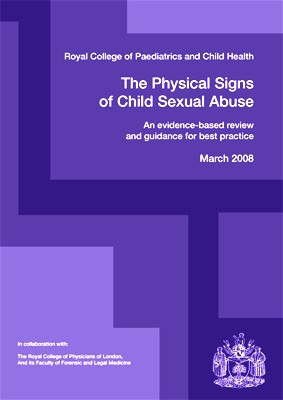
Dame
Butler Sloss called for more research into physical examinations of
children who allege abuse - we hope as much as to protect the innocent
from false allegations as to protect children from abuse. We are following
an interesting case that is being referred back to the Criminal
Cases Review Commission, where it appears that a girl alleged
penetration (rape), but that the girl when examined appeared to be a
virgin and intact with no signs of trauma - having complained of regular
assaults.
ON MARRIAGE 2005 - INDEPENDENT
Marriage was once considered to be for life, but marriage is now often entered into without any real effort or intention to make it last and it survives only until one spouse chooses to bring it to an end. Recent statistics show that the trend in marriage is declining year by year and the press has recently been full of dire forebodings about its virtual demise within the next 20 or 30 years.
Marriage does continue to have advantages which are not sufficiently trumpeted. Support for marriage would have economic as well as social advantages for the public and for the state. The Government proclaims its support for the family and it is and should be looking at ideas to carry this forward in the community, particularly among the young. It is however a sad fact that the Government has done nothing practical to support married couples.
In the past married couples enjoyed tax concessions which the Government has withdrawn. There is now no financial incentive to marry or remain married and a financial incentive to cohabit and not to marry. This outcome which contributes to the downgrading of the status of marriage is particularly sad since the statistics show that marriage remains the most stable of all relationships between men and women, even with the incidence of divorce. The average length of cohabitation is said to be three years.
The recent Civil Partnership Act applies to single sex relationships. Deliberately that legislation does not apply to cohabitation between a man and a woman. As I understand the thinking, the decision not to include heterosexual couples was to encourage marriage.
I have the gravest doubts whether the omission in this Act of those who cohabit will have that positive effect on marriage, and it leaves a substantial section of society liable to elaborate litigation and potentially unjust outcomes if or when their relationship breaks down. In my view post-separation rights to cohabiting couples should be included in family legislation and marriage should be supported in other more effective ways.
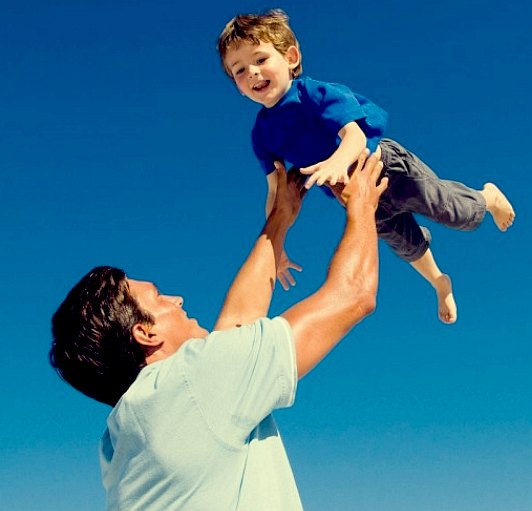
The
law is imprecise as to parenting with Dame Butler Sloss apparently making
contradictory statements - it's all very subjective.
SHARED
PARENTING
Cara Retired President of the Family Division, Baroness Butler-Sloss has expressed her strong objections to Shared Parenting legislation:
http://www.express.co.uk/posts/view/370559/No-50-50-sharing-of-chil…
The Baroness said: “I’ve heard one father who went into court saying, ‘Once this law is enforced, I will get half of the child’ ”.
Is she claiming to have heard this father in a case over which she was presiding? It seems so.
And yet the Baroness retired from the Bench many years ago, and well before the Shared Parenting Bill was aired.
How, then, was she actually able to hear this father’s comments concerning the Shared Parenting Bill?
In fairness, she may have intended to say that she had heard of the father’s comments from a third party, or perhaps that she had heard the father speak as he went into a courtroom whilst she was hanging around outside it.
Of greater interest is the Baroness’s undying personal belief that “a child has to live in one place”.
But is that really so?
Should we start worrying about middle-class children who spend months each year living in their parents’ second holiday home? And should we also be closing down their boarding schools?
Should we be removing all children from divorced parents who have happily agreed upon a Shared Parenting routine?
There are many children who benefit from having one bedroom at their mum’s home and a second bedroom at their dad’s, and who positively thrive from having a meaningful relationship with both of their parents.
Confusingly, in the same interview, the Baroness said that Shared Parenting is perfectly fine and acceptable when the parents are behaving “sensibly”.
How, though, does she reconcile this statement with her other statement that “a child has to live in one place”?
The Baroness comes across as a confused old lady with very old-fashioned, ill-conceived and plainly defunct ideas.
There are three major flaws in the views of the Baroness.
Firstly, she makes the erroneous and very misleading presumption that those who support Shared Parenting legislation are calling for a rigid 50/50 split of parenting time.
Most reasonable voices who have campaigned for Shared Parenting (such as Families Need Fathers and The Custody Minefield) have acknowledged for many years that a rigid 50/50 split of parenting time would be impractical in many cases.
Instead, these campaigners have called for the ‘significant’ and ‘meaningful’ involvement of both parents, in order that the child may benefit from being properly parented by both its parents. Theirs has always been a qualitative approach.
Of course, in order for a child to have a significant and meaningful relationship with both its parents, it will need to spend some minimum quantum of time with both parents, but this certainly need NOT be 50%.
Many who are vehemently against Shared Parenting legislation are finding it extremely difficult to counter the very widespread and powerful scientific evidence in favour of Shared Parenting.
They have commissioned a handful of academics (e.g. Mavis McClean) in an effort to discredit Shared Parenting, but the evidence in favour of Shared Parenting is overwhelming. There exists a general consensus amongst social scientists that Shared Parenting is beneficial to children.
There are obvious parallels with Oil Companies which commission selected academics in an effort to discredit the evidence for Global Warming!
Opponents of Shared Parenting are desperately (and rather mischievously) attempting to shift both the debate and their attack upon the notion of 50/50. Even the Baroness succeeded in getting the Express Newspaper to headline this 50/50 notion!
Secondly, whilst the Baroness concedes that children benefit from Shared Parenting when their parents are both behaving “sensibly”, she states that children whose parents who are not both behaving “sensibly” cannot benefit from Shared Parenting, as this would be harmful.
In the common scenario in which the court-appointed Resident Parent (usually mum) is upset and aggrieved with any aspect of the separation or divorce, does not behave “sensibly” and refuses to facilitate contact, the Baroness suggests that the Non-Resident Parent (usually dad) should NOT be involved in the parenting of his child. His involvement would cause friction by upsetting the Resident Parent.
The Baroness appears quite unable to perceive firstly, the plain injustice of her argument and, secondly, the long-term harm and disadvantage to the child in effectively losing one of its parents.
She gives paramountcy to the wishes and feelings of the Resident Parent, to the obvious detriment of the child.
Thirdly, the Baroness appears completely out of touch with the current Zeitgeist concerning 21st century parenting.
She remains firmly wedded to the ideology of the 1960′s and 70′s which strongly held that children needed the nurturing of their mothers and the financial support of their fathers.
In no other of the Baroness’s judgments is this out-of-date ideology so stark as in the judgment of Payne v Payne (2001).
As a consequence of this particular judge-made law, thousands of children have been removed overseas and have lost meaningful contact with the left-behind parent (usually their father).
Furthermore, when fathers lose meaningful contact with their children, the children’s paternal grandparents also inevitably lose contact.
Grandparents’ rights have been repeatedly ignored by the Government in this respect. The forthcoming Children and Families Bill will not legislate for grandparents.
The ‘Grandparents Association’ is very aware of the difficulties faced by its members:
http://www.grandparents-association.org.uk/dc/denied-contact.html
One would imagine that the Grandparents Association has a dedicated President fighting fearlessly for the most important of all their rights: the right to be a grandparent to their grandchildren.
Not so! Their Patron is… Baroness Butler-Sloss!
|
Dame
Butler Sloss - Youtube
|
LINKS
http://en.wikipedia.org/wiki/Death_of_Diana,_Princess_of_Wales
Mohamed-Fayed-will-not-challenge-Princess-Diana-inquest-verdict
Soldiers-claim-SAS-hit-squad-did-kill-Princess-Diana-is-utterly-convincing
http://childrenandfamiliesbill.wordpress.com/baroness-butler-sloss-on-shared-parenting/
dame-elizabeth-butlersloss-there-is-now-no-financial-incentive-to-marry
http://amandaknox.net/
http://www.thehollywoodgossip.com/gallery/amanda-knox-photograph/
http://womansday.ninemsn.com.au/lifestyle/truelifestories/8357001/amanda-knoxs-secret-prison-diary
http://www.statesman.com/news/lifestyles/newsmakers-amanda-knox-signs-book-deal
http://www.nytimes.com/2013/05/26/books/review/trial-and-error.html
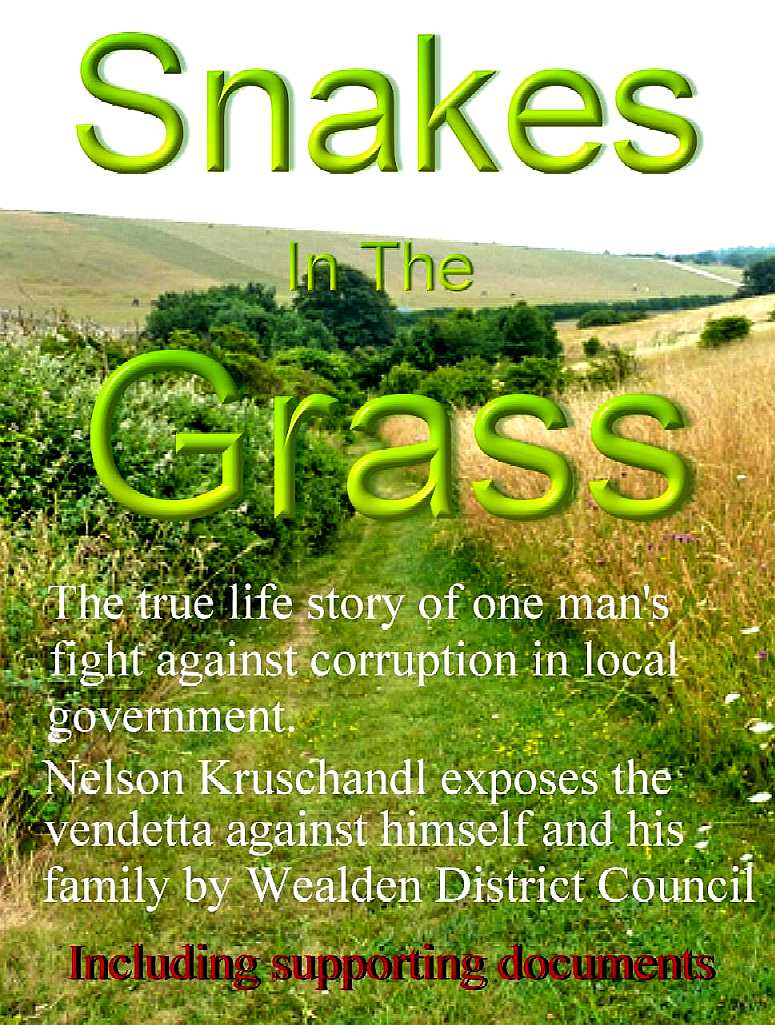
TRUE
LIFE: Acting in an official capacity is no excuse for blatant violations
of any person's basic human rights. More to the point, how can such
morally reprehensible actions be condoned by any State - let alone one
that is claiming to be a proponent of equality and fair play. Dame Butler
Sloss played a part in forcing Nelson Kruschandl to remove sanitation that
was a legal
requirement, telling him that one removed to placate a lady Judge in
the Court below, that he might then replace the same sanitation to comply
with the law of the land. Although we are pro female in the justice
system, you might agree with us on this occasion that that is some kind of
warped thinking.
|







